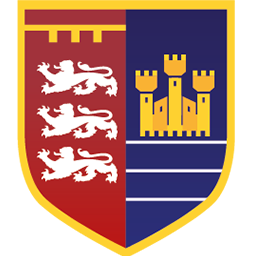Geography
'The study of Geography is about more than just memorising places on a map. It's about understanding the complexity of the world, appreciating the diversity of cultures that exists across continents. And in the end, it's about using all that knowledge to help bridge divides and bring people together.'
Barack Obama
Curriculum Intent
We believe all students deserve a Geography curriculum that is engaging and inspires students to want to know more about the world around them. In line with the Trusts vision, we want to equip students with the skills and knowledge to give them the best life chances post 16. We aim to do this through a Geography curriculum that aims to help our young people to understand the complexities of both the natural environment and human systems as well the cause-and-effect relationships that exist within it, our curriculum encourages students to be curious and ask questions about the world around us. We want students to understand the diversities of people and places and their importance’s and to recognise their own place in the rich tapestry of the global community. In addition to this we aim to allow students to learn from the significance of both natural and human events so pupils can appreciate how we can make the world a better place.
Careful consideration has been, and will continue to be put into developing the Geography curriculum: the curriculum is taught synoptically with human and physical topics interwoven in a way that we feel is integral to helping students to make links between topics that enables them to have a deeper understanding of the concepts of people and place. The curriculum spirals and is planned and sequenced so that new knowledge is embedded using the skills and concepts that have previously been taught. The curriculum is centred on the five key themes of Location, Place, Human-Environment Interaction, Movement and Region. As students’ progress through the curriculum, they will gain an understanding of key second order concepts such as, processes, scale, change, patterns, systems and perceptions and values. Revisiting key concepts is embedded throughout years 7-11.
Students will be taught units of work that cover and go beyond the requirements of the national curriculum and this should enable students to: study issues at a local, national and global level in both human and physical geography as well as developing the geographical skills required to do this.
- Understand the relationships between physical and human environments and processes,
- Understand the diverse character of places and landscapes,
- Understand the interactions and interrelationships on the Earths surface,
- Demonstrate a knowledge of location, places and environments on a range of scales,
- Apply knowledge and understanding to interpret, analyse and evaluate geographical information and issues to make judgements and ask questions about the world,
- Develop a range of geographical skills including cartographic, graphical, numerical and statistical,
- Use GIS to view and analyse and interpret places and data,
- Carryout, present, analyse, interpret and evaluate fieldwork.
Geography has an important role in developing pupils’ cultural capital. Studying Geography helps students to understand their role in the world. It helps students to understand local, national and global issues and the significance of these issues in their lives.
Some examples of key issues that are discussed are; climate change and pollution, causes and impacts of conflict, urban issues including populations growth, transportation and waste, development and the factors that influence this. Through discussion of key geographical matters, experiences gained from co- curricular, trips and talks to understanding the utility and broad application of science qualifications, knowledge and skills used in Geography, the department builds on students’ geographical capital.
Curriculum Content
Each department has carefully developed curriculum plans in line with our curriculum intent. The curriculum overview for each year group in this subject can be found below.


